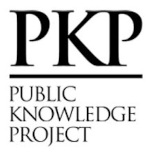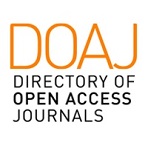Explorando Estratégias Lúdicas e Tecnológicas
Perspectivas para o Desenvolvimento de Jogos e Aplicativos Educativos sobre Reciclagem para Crianças
DOI:
https://doi.org/10.29147/datjournal.v10i2.891Palavras-chave:
Jogos, Aplicativos Educacionais, Reciclagem, CriançasResumo
Conforme o comportamento humano torna-se um fator significativo no impacto do descarte de resíduos na natureza, é crucial explorar estratégias para engajar a população nesse tema e incentivar uma relação mais sustentável com o meio ambiente. A presente revisão foca no mapeamento e compreensão dos aspectos relevantes fornecidos pela literatura de 1º de janeiro de 2020 a 10 de maio de 2024, para a produção e uso de softwares e aplicativos de jogos voltados para ensinar crianças sobre preservação ambiental e princípios de reciclagem. Os resultados destacam a importância da conscientização ambiental desde a infância, enfatizando o papel da educação lúdica e tecnológica na promoção de práticas sustentáveis entre as crianças.
Downloads
Referências
BANDURA, A. Social foundations of thought and action. Englewood Cliffs, NJ: Prentice-Hall, 1986.
FINK, A. Conducting research literature reviews: From the internet to paper. 3rd ed. London: SAGE Publications, Inc, 2010.
KAVERI, G. Household waste generation: Understanding family practices and challenges in Singapore. Unpublished manuscript, 2021.
KIM, S., et al. Educational games and students’ game engagement in elementary school classrooms. Journal of Computers in Education, v. 4, n. 4, p. 395-418, 2017. DOI: https://doi.org/10.1007/s40692-017-0095-4
KUROKAWA, H., et al. Improvement impact of nudges incorporated in environmental education on students’ environmental knowledge, attitudes, and behaviors. Journal of Environmental Management, v. 325, 116612, 2023. DOI: https://doi.org/10.1016/j.jenvman.2022.116612
LANKES, M., et al. InterPlayces: Results of an intergenerational games study. In: Serious Games: Third Joint International Conference, JCSG 2017, Valencia, Spain, November 23-24, 2017, Proceedings 3. Springer International Publishing, 2017.
LOCRITANI, M.; MERLINO, S.; ABBATE, M. Assessing the citizen science approach as tool to increase awareness on the marine litter problem. Marine Pollution Bulletin, v. 140, p. 320-329, 2019. DOI: https://doi.org/10.1016/j.marpolbul.2019.01.023
MOHER, D.; LIBERATI, A.; TETZLAFF, J.; ALTMAN, D. G.; The PRISMA Group. Preferred reporting items for systematic reviews and meta-analyses: The PRISMA statement. PLoS Medicine, v. 6, n. 6, 2009. Disponível em: http://dx.doi.org/10.1371/journal.pmed1000097. DOI: https://doi.org/10.1371/journal.pmed.1000097
NINSIANA, W.; SEPTIYANA, L.; SUPRIHATIN, Y. Introducing eco-literacy to early childhood students through digital learning. Journal of Education and Learning (EduLearn), v. 18, n. 1, p. 89-96, 2024. DOI: https://doi.org/10.11591/edulearn.v18i1.20678
PAREJO, J.-L., et al. Plastics as an educational resource for sustainable development: A case study in Ghana. Sustainability, v. 13, n. 12, 6727, 2021. DOI: https://doi.org/10.3390/su13126727
POJE, M., et al. Environmental Education on Sustainable Principles in Kindergartens—A Foundation or an Option? Sustainability, v. 16, n. 7, p. 2707, 2024. DOI: https://doi.org/10.3390/su16072707
PRAET, E., et al. Bottle with a message: The role of story writing as an engagement tool to explore children’s perceptions of marine plastic litter. Marine Pollution Bulletin, v. 186, 114457, 2023. DOI: https://doi.org/10.1016/j.marpolbul.2022.114457
PRAMLING SAMUELSSON, I. Why we should begin early with ESD: The role of early childhood education. International Journal of Early Childhood, v. 43, n. 2, p. 103-118, 2011. DOI: https://doi.org/10.1007/s13158-011-0034-x
ROSSANO, V.; DE CAROLIS, B.; MANZONI, P. Mini-games to Motivate and Engage Users in Learning Recycling Rules. In: International Conference in Methodologies and Intelligent Systems for Technology Enhanced Learning. Cham: Springer International Publishing, 2022. DOI: https://doi.org/10.1007/978-3-031-20617-7_10
SALAZAR, C., et al. From theory to action: Explaining the process of knowledge attitudes and practices regarding the use and disposal of plastic among school children. Journal of Environmental Psychology, v. 80, 101777, 2022. DOI: https://doi.org/10.1016/j.jenvp.2022.101777
SHEAVLY, S. B.; REGISTER, K. M. Marine debris & plastics: Environmental concerns, sources, impacts and solutions. Journal of Polymers and the Environment, v. 15, n. 4, p. 301-305, 2007. DOI: https://doi.org/10.1007/s10924-007-0074-3
TERÁN, Y.; GIMÉNEZ, A. Experiencias de educación ambiental en la catedra Biología del Programa Ingeniería Agroindustrial de la UCLA. Agroindustria, Sociedad y Ambiente, v. 1, n. 18, p. 132-138, 2022.
Downloads
Publicado
Como Citar
Edição
Seção
Licença
Copyright (c) 2025 DAT Journal

Este trabalho está licenciado sob uma licença Creative Commons Attribution 4.0 International License.


























